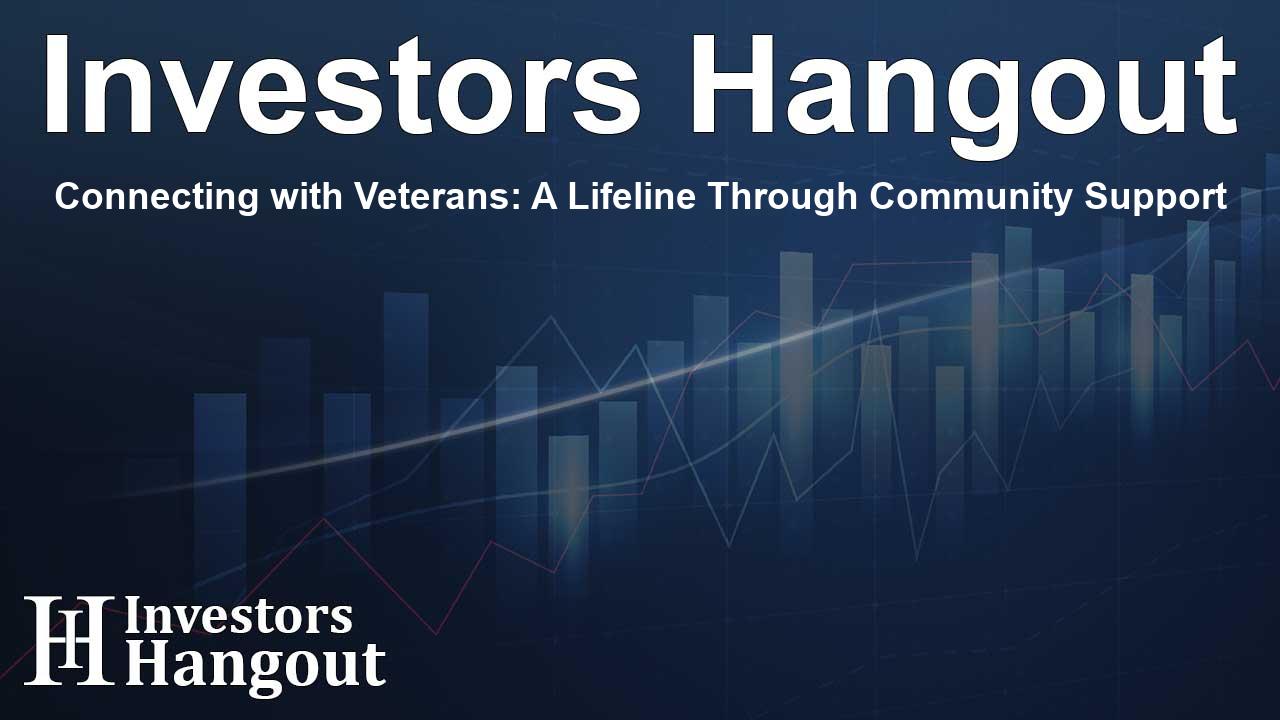Connecting with Veterans: A Lifeline Through Community Support

The Importance of Connection for Veterans
Veterans often face tremendous challenges as they transition back to civilian life. Among the many hurdles, feelings of isolation and loneliness can significantly impact mental health. A staggering statistic from various studies indicates that over one in four veterans have experienced suicidal thoughts in the past year. This reality emphasizes how critical social connections are for their well-being.
Understanding Social Connection
Research shows that strong social ties not only enhance the quality of life but also serve as a crucial buffer against suicidal thoughts. For veterans particularly, those who engage in supportive communities report better mental health. This is especially significant during times when awareness surrounding mental health is highlighted, as seen during initiatives like Suicide Prevention Awareness Month.
How a Simple Check-in Can Help
Something as straightforward as checking in with someone can dramatically change their outlook. A simple message or conversation can remind our veterans that they are valued and not alone in their struggles. Such small gestures can lead to significant changes in their mental state.
Key Findings from Veteran Surveys
Four important points emerged from recent surveys conducted among veterans:
- Loneliness increases the risk of mental health issues, with veterans feeling isolated reporting over three times higher instances of suicidal thoughts compared to those who feel connected.
- A notable 67% of veterans stated that conversations with fellow service members help alleviate mental stress and promote coping mechanisms.
- Participation in support groups markedly reduces the likelihood of reporting suicidal ideation, fostering an environment of solidarity.
- Engaging with peers enhances mental resilience, thereby promoting recovery from traumatic experiences.
The Story of Jacob Norotsky
Jacob Norotsky, an Army veteran, reflects on his transition from soldier to civilian life. His journey through recovery from both physical and mental injuries showcases the profound impact of community. After facing a life-threatening situation during combat, Jacob returned home burdened by trauma and injuries. It was his connection with others, particularly through the Wounded Warrior Project, that made a pivotal difference in his recovery. His wife encouraged him to participate in a Wounded Warrior Project program, which ultimately became a turning point in his life.
Insights from Lyndsay Tkach
Lyndsay Tkach, a dedicated mental health advocate for veterans, discusses the strategies being implemented to foster prevention programs. Her focus on community outreach highlights the essential role that education and support play in combating loneliness. Tkach oversees efforts that engage a vast network of veterans over 250,000 strong, ensuring accessible resources and support.
Continuing the Conversation
For veterans, awareness is vital. Engaging in conversations about mental health can demystify the stigma often associated with seeking help. Organizations like Wounded Warrior Project continue to promote education around mental health issues, encouraging veterans and their families to engage with each other and seek necessary support.
Empowering Veterans and Families
Training initiatives offered by such organizations empower individuals, regardless of their clinical background, to be active participants in suicide prevention. Community involvement and support systems are vital in aiding recovery, particularly in crisis situations.
Frequently Asked Questions
1. Why is social connection important for veterans?
Social connection plays a crucial role in improving mental health and reducing feelings of isolation, helping to mitigate suicidal thoughts.
2. How can checking in with veterans make a difference?
A simple check-in can provide reassurance and remind veterans they are not alone, significantly boosting their mental health.
3. What percentage of veterans experience suicidal thoughts?
Reports indicate that more than 1 in 4 veterans have experienced suicidal thoughts within the past 12 months.
4. What can reduce the likelihood of suicidal ideation among veterans?
Participation in support groups and maintaining strong social ties are pivotal in reducing suicidal ideation.
5. Who can play a role in veteran suicide prevention?
Community members, family, and peers have an essential role to play in supporting veterans and fostering an environment where seeking help is encouraged.
About The Author
Contact Evelyn Baker privately here. Or send an email with ATTN: Evelyn Baker as the subject to contact@investorshangout.com.
About Investors Hangout
Investors Hangout is a leading online stock forum for financial discussion and learning, offering a wide range of free tools and resources. It draws in traders of all levels, who exchange market knowledge, investigate trading tactics, and keep an eye on industry developments in real time. Featuring financial articles, stock message boards, quotes, charts, company profiles, and live news updates. Through cooperative learning and a wealth of informational resources, it helps users from novices creating their first portfolios to experts honing their techniques. Join Investors Hangout today: https://investorshangout.com/
The content of this article is based on factual, publicly available information and does not represent legal, financial, or investment advice. Investors Hangout does not offer financial advice, and the author is not a licensed financial advisor. Consult a qualified advisor before making any financial or investment decisions based on this article. This article should not be considered advice to purchase, sell, or hold any securities or other investments. If any of the material provided here is inaccurate, please contact us for corrections.
